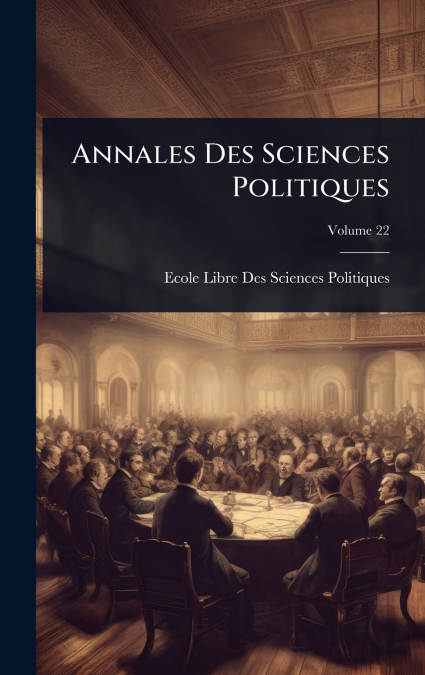
Ecole Libre Des Sciences Politiques
Annales des Sciences Politiques, Volume 22 presents a collection of essays and analyses from the esteemed Ãcole Libre des Sciences Politiques. Published in 1907, this volume offers invaluable insights into the political, social, and economic issues of early 20th-century France and Europe. Authored by leading scholars and thinkers of the time, the essays cover a wide range of topics, including governance, international relations, and social policy. This work provides a rich tapestry of perspectives on the challenges and opportunities facing France during a period of significant transformation. It remains an essential resource for historians, political scientists, and anyone interested in understanding the intellectual currents that shaped modern Europe.This historical collection offers a detailed snapshot of the critical debates and discussions that defined the era. ’Annales des Sciences Politiques’ stands as a testament to the enduring importance of rigorous scholarship in understanding the complexities of the political landscape.This work has been selected by scholars as being culturally important, and is part of the knowledge base of civilization as we know it. This work was reproduced from the original artifact, and remains as true to the original work as possible. Therefore, you will see the original copyright references, library stamps (as most of these works have been housed in our most important libraries around the world), and other notations in the work.This work is in the public domain in the United States of America, and possibly other nations. Within the United States, you may freely copy and distribute this work, as no entity (individual or corporate) has a copyright on the body of the work.As a reproduction of a historical artifact, this work may contain missing or blurred pages, poor pictures, errant marks, etc. Scholars believe, and we concur, that this work is important enough to be preserved, reproduced, and made generally available to the public. We appreciate your support of the preservation process, and thank you for being an important part of keeping this knowledge alive and relevant.